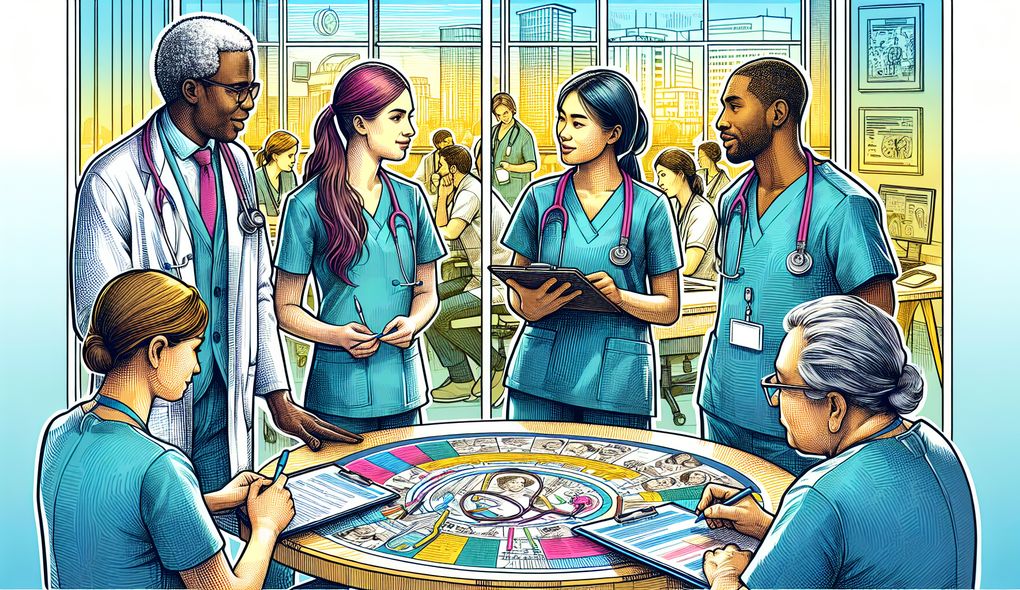How do you handle stressful situations at work? Can you provide an example?
SENIOR LEVEL

Sample answer to the question:
When faced with stressful situations at work, I try to remain calm and focused. One example of a stressful situation I encountered was when our clinic had multiple patient cancellations, and we needed to reschedule appointments to fill the gaps in the schedule. To handle this, I quickly assessed the available resources and prioritized the patients who required urgent care. I communicated with the healthcare professionals and ensured that the rescheduling process was smooth and efficient. By maintaining open communication and collaborating with the team, we were able to handle the situation effectively without compromising patient care.
Here is a more solid answer:
In stressful situations at work, I have developed a systematic approach to ensure effective resolution. One example of this is when our clinic unexpectedly experienced a power outage during a busy patient schedule. To handle this, I quickly assessed the situation and communicated with the healthcare professionals and administrative staff to develop a contingency plan. We prioritized patient safety and comfort by activating backup generators, securing essential equipment, and informing patients of the situation. I also coordinated with the electricity provider to get updates on the power restoration timeline. By maintaining open communication, making prompt decisions, and working together as a team, we successfully managed the situation and minimized disruptions to patient care.
Why is this a more solid answer?
The solid answer expands on the basic answer by providing more specific details and examples of the candidate's skills and actions. It demonstrates their ability to handle unexpected stressful situations and highlights qualities such as communication, problem-solving, and teamwork. The answer could be further improved by incorporating the candidate's experience with healthcare management systems and their proficiency in handling patient-related challenges.
An example of a exceptional answer:
Handling stressful situations at work requires a combination of emotional resilience, critical thinking, and effective communication. One notable example of this is when our clinic faced a sudden influx of patients due to a neighboring clinic's closure. This posed a significant challenge as our resources were stretched, and patient wait times increased. To address this, I immediately assessed the situation and devised a plan to optimize the clinic's operational flow. I collaborated with the healthcare professionals to streamline appointment scheduling, implemented a triage system to prioritize urgent cases, and communicated with patients to manage expectations. Additionally, I coordinated with external healthcare facilities to secure additional resources and support. By proactively managing the situation, leveraging my leadership skills, and fostering a collaborative environment, we successfully mitigated the impact of the influx and maintained quality patient care throughout the challenging period.
Why is this an exceptional answer?
The exceptional answer further elevates the response by providing a more detailed and comprehensive example of the candidate's ability to handle stressful situations. It showcases their emotional resilience, critical thinking, leadership, and collaboration skills. The candidate demonstrates their proficiency in managing operational flow, adapting to unexpected challenges, and maintaining a patient-centric approach. The answer could be enhanced by highlighting specific techniques or strategies used to optimize the clinic's operational flow and further emphasize the candidate's leadership abilities.
How to prepare for this question:
- Reflect on past experiences: Take time to reflect on any past experiences where you faced stress at work and successfully resolved the situation.
- Develop a systematic approach: Develop a systematic approach or framework for handling stressful situations. This can include steps such as assessing the situation, prioritizing tasks, communicating effectively, and seeking support when needed.
- Practice active listening: Improve your communication skills by practicing active listening. This will enable you to understand and address concerns more effectively in stressful situations.
- Stay updated on industry practices: Stay informed about current industry practices and trends in healthcare management to enhance your problem-solving abilities.
- Seek feedback: Request feedback from colleagues or supervisors on how you handle stressful situations. Their insights can help you identify areas for improvement and refine your approach.
What are interviewers evaluating with this question?
- Stress management
- Problem-solving
- Communication
- Teamwork

